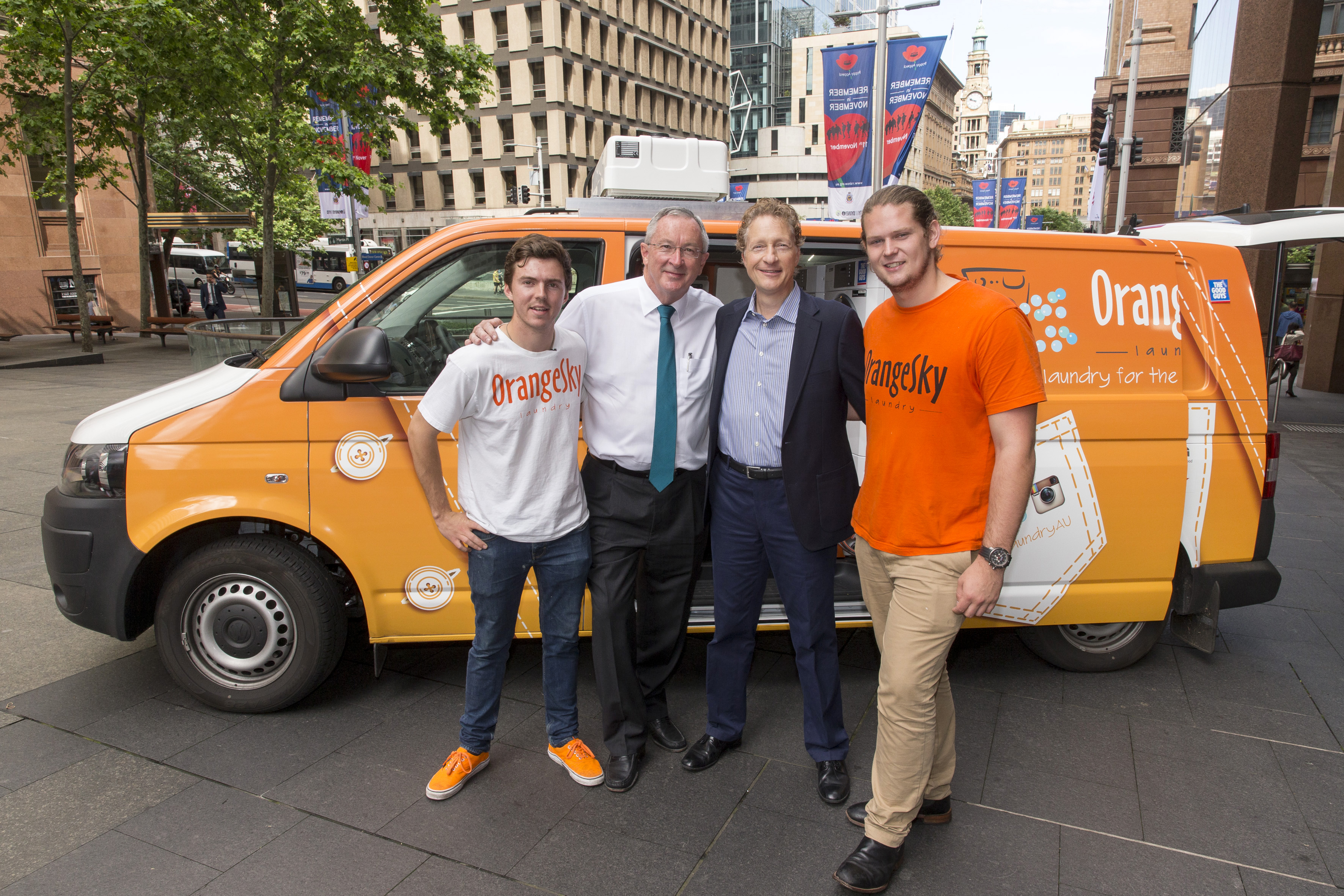The art of giving in business

Every business, regardless of its size, should be aware of the contribution it can make to society. The essence of a business is more than just the product or service it provides. After all, it’s not what you do, but how you do it.
While charitable acts should be performed without expectation of financial gain, giving back to society comes with many rewards beyond establishing goodwill.
If done well, serving the needs of a community will act as a powerful tool in attracting and retaining quality talent and a tribe of loyal customers – both of which are essential to run a good business.
HOW TO START (HINT: IT DOESN’T TAKE A LOT OR EVEN ANY MONEY)
There isn’t a one-size-fits-all approach to giving back, the level of commitment will vary depending on what a business does, its size and the resources it has available.
However, contrary to popular belief, getting it right doesn’t depend on an endless stream of cash or a sophisticated marketing campaign. The key to success is having the right motivations, a genuine interest in the cause, company-wide buy in, and a long-term view.
Common strategies that businesses adopt for giving back often fall into one of two categories, corporate social responsibility (CSR) or cause-related marketing (CRM).
When a business practises CSR it means it’s participating in an initiative designed to directly benefit society, for example committing to plant a tree for every car sold, or recycling all of its waste water.
CRM, on the other hand, is a marketing initiative with a philanthropic bent that typically establishes a strategic partnership between a corporate and charity. It is most common in B2C businesses and is mutually beneficial for both parties.
For example, if Reebok decides to launch a range of pink runners and a proportion of the proceeds go towards breast cancer research, the charity benefits from its portion of sales made and Reebok sells more of its products – win-win.
Anytime is a good time to engage in CSR or CRM and any business can make a difference, whether it’s a start-up, established SME, or large enterprise.
If your organisation doesn’t have money available to give a large corporate donation, you can donate goods. If you can’t do this, you can donate time and skills to a cause that aligns well with your business.
CHOOSING A CAUSE THAT FITS
It goes without saying that some businesses’ motivations for undertaking CSR or CRM are less than genuine, and motivated by increasing sales and improving reputation.
In a similar vein, merely meeting compliance doesn’t qualify as CSR. Sure, you may not have dumped mercury in the water, but by not committing this act, you cannot argue that you have made a difference to society.
To ensure your company’s efforts in CSR or CRM aren’t dismissed with cynicism, it’s critical to give potential causes serious consideration and engage your team in the process.
Input from your team in choosing a cause is one of the most effective ways to generate enthusiasm, commitment and their involvement. Buy-in from senior management is also vital, because if those in charge aren’t committed, the program is destined to fail.
In addition to consulting with your team, take a good look at the needs within your local community. This works particularly well for local businesses where large corporate donations aren’t necessarily achievable.
During my time as CEO of The Good Guys overseeing the company’s philanthropic program, we chose to partner with Orange Sky Laundry – Australia’s first mobile laundry for the homeless.
At the time, Orange Sky Laundry needed funds to help expand its critical services across Melbourne and eventually nationally.
We contributed funds and resources in the form of washing machines and it was incredibly rewarding for all of us knowing that our work was having a direct and tangible impact in the local community.
Over time, The Good Guys staff and staff of our corporate partners grew to be so invested in the partnership and its outcomes, that they raised their hands to volunteer at Orange Sky Laundry.
In addition to wanting to support Orange Sky Laundry’s brilliant work, as a business that sold one in every three laundry products sold in Australia, it made good sense for The Good Guys to partner with the not-for-profit.
Likewise, when we partnered with Jamie’s Ministry of Food in Australia, the practical fit was obvious.
When considering how to go about giving back, beginning the process with what your business does and how to adapt your products or services to benefit others is a great place to start. It can be as simple as a café or restaurant donating leftover food, or finance professionals helping to teach kids maths and money basics.
If the nature of your business doesn’t lend itself to an obvious way of giving back, think about where your and your team’s interests lie. Is it the environment, helping children, the arts? When your ‘personal social responsibility’ (PSR) aligns with your CSR, long-term and impactful results are made possible.
THE FLOW ON EFFECT
Beyond benefiting the cause or organisation you choose to support, when done well (and sincerely), CSR and CRM can provide numerous benefits within your business.
Not surprisingly, research shows that engaging with corporate social responsibility boosts employee morale, which leads to higher employee satisfaction and ultimately a higher staff retention rate. Not to mention that people who are proud of their workplace are more likely to speak positively about it to others.
The millennial generation who are currently those stepping into the workforce are particularly engaged with companies that do good, with more than 80 per cent consistently indicating they are conscious of how a company gives back or is sustainable.
Millennials are more aware of businesses that have a conscience than previous generations and view socially responsible organisations as workplaces of choice.
From my own experience, when working with the team on our various community partnerships, I witnessed a level of engagement and excitement in staff that was uniquely powerful and meaningful.
Beyond just staff, however, suppliers and customers feel more aligned and loyal to a business that makes a concerted effort to have a positive impact on society.
This article originally appeared in Generosity Magazine.
Andrew Muir, Cause-related marketing, Doing good, Orange Sky Laundry, Philanthropy




